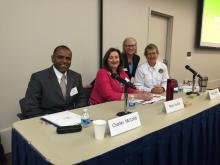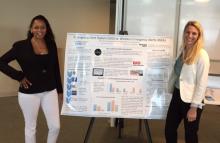500 10th Street NW, Atlanta, Georgia 30332-0620 | 404-3854614 | Contact Us
The Rehabilitation Engineering Research Center for Wireless Technologies is sponsored by the National Institute on Disability, Independent Living, and Rehabilitation Research (NIDILRR) of the U.S. Department of Health and Human Services under grant number 90RE5007-01-00. The opinions contained in this website are those of the Wireless RERC and do not necessarily reflect those of the U.S. Department of Health and Human Services or NIDILRR.









